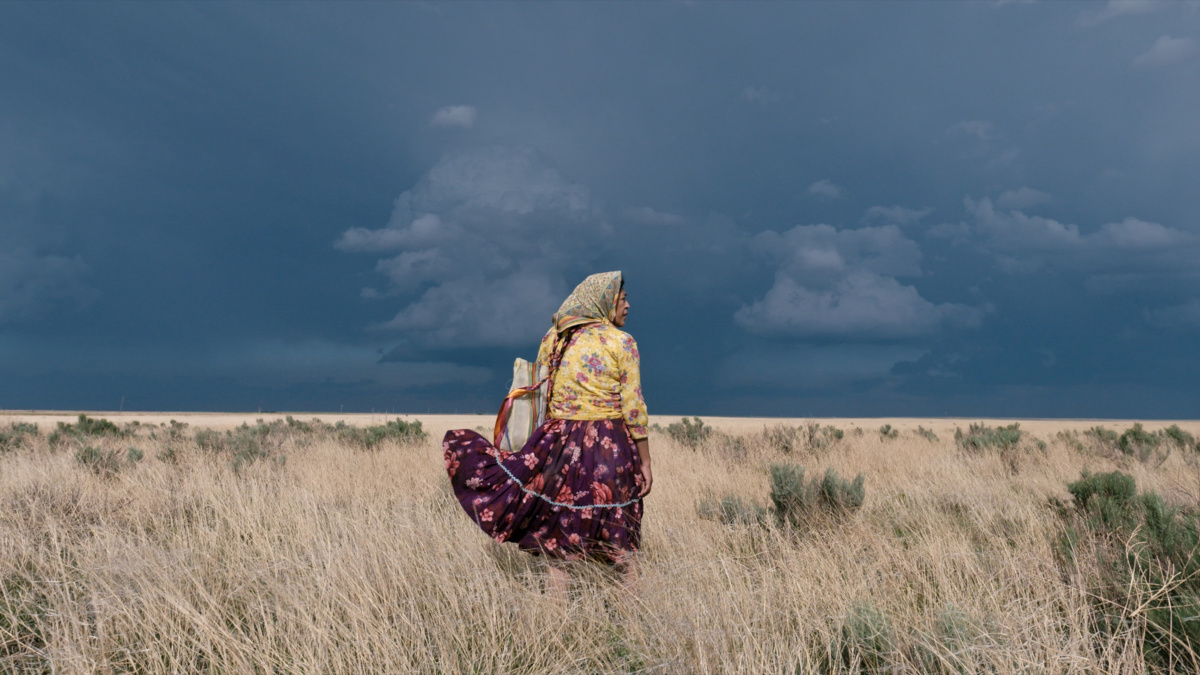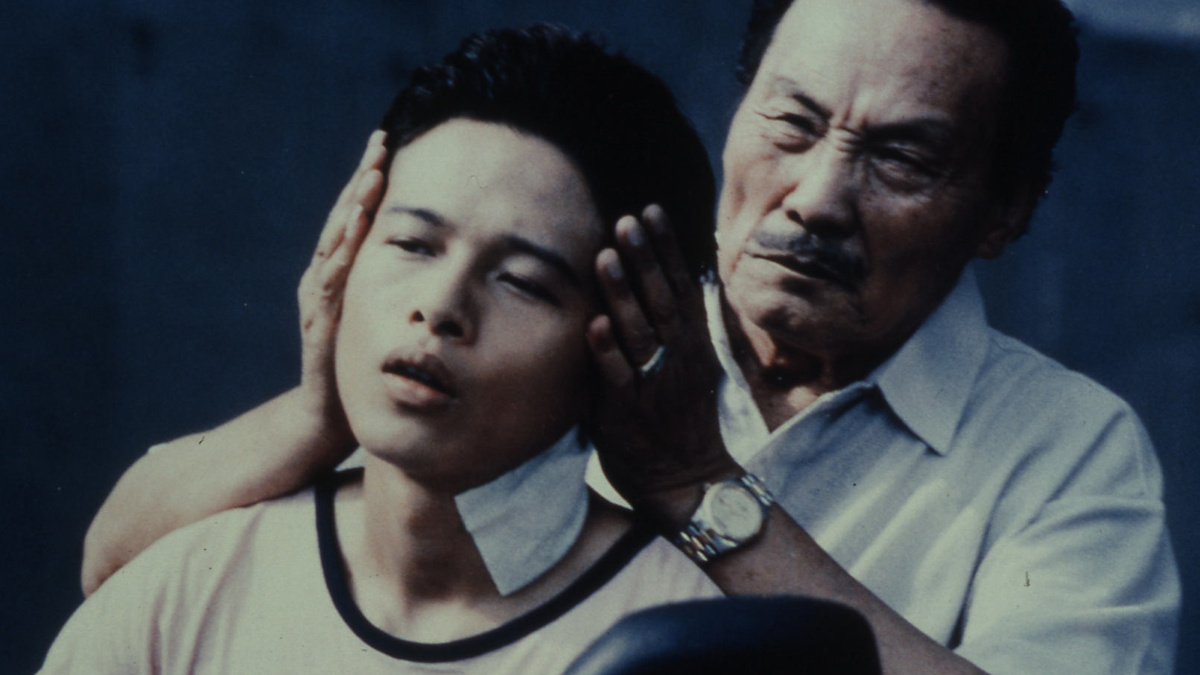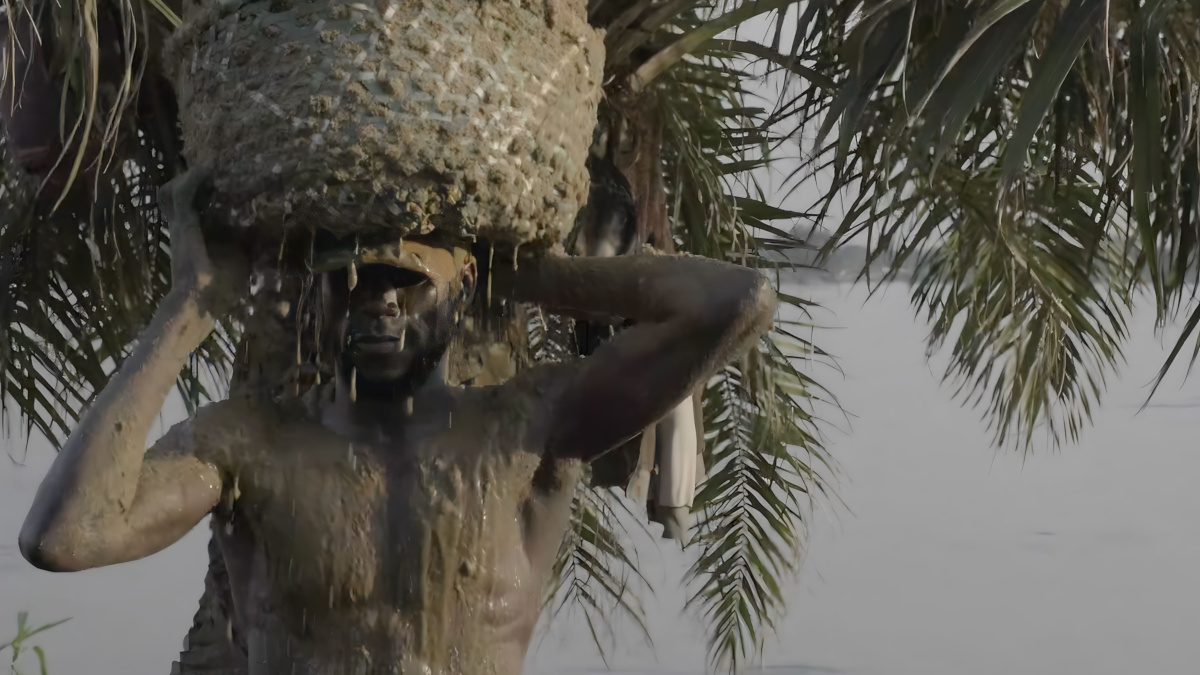Round tables and Masterclass
Sometimes, certain films and certain filmmakers in our programme seem to communicate with each other, or to participate in the same reflection. So that these discussions can continue to take shape and be shared with the public, the Black Movie Festival is organising a series of round tables and a masterclass. A masterclass by Tsai Ming-liang, the place of indigenous Americans in cinema, Chinafrica and the issue of archives and cinema produced in Africa are just some of the subjects that these events will explore. Open to all, these events are designed to encourage reflection, discovery and discussion on film and social issues.
Free admission.

Masterclass Tsai Ming-liang, meeting a sculptor of time
The masterclass will be an opportunity to discuss with Tsai Ming-liang the relationship between the arts and the 7th art, the close links between them in his work, and his (re)definition of cinema.
Saturday 20.01.2024 at 17:30
Cinémas du Grütli, salle Grütli Simon

The Cemetary of Cinema
A discussion on the place of archives and cinema in a colonial and post-colonial context.
Monday 22.01.2024 at 18:30
Fonction : Cinéma

Subaltern Stories, representing Native Americans in film
By definition, subaltern peoples are marginalised communities whose voices and actions are ignored. How can cinema move beyond the reductive, colonial mythology of the early westerns to reinvent itself and give a voice to the indigenous peoples of America?
Thursday 25.01.2024 at 18:30
Fonction : Cinéma

Chinafrica: between partnership and neo-colonialism
In Eat Bitter, Pascale Appora-Gnekindy and Ningyi Sun tell the story of two men whose paths cross: Thomas and Luan. In the Central African Republic, the former dives into the river to extract the sand needed for the worksites directed by the latter.
This round table will attempt to shed light on this ambiguous geopolitical relationship between the two countries.
Saturday 27.01.2024 at 17:30
Fonction : Cinéma
Masterclass Tsai Ming-liang, meeting a sculptor of time
Bastian Meiresonne, consultant on Asian cinema.
Tsai Ming-liang dreamed of being a painter, but he has become one of the most sensual filmmakers in contemporary arthouse cinema. Art, however, has remained inseparable from his work as a filmmaker: like an obsessive painter, he explores two hues, solitude and desire, nourished by subtle variations from one film to another. The succession of long, calm shots also transforms certain films into living paintings.
In 2013, Tsai Ming-liang announced that he wanted to end his career, fed up with the film industry. He then explored various artistic disciplines (theatre, opera, installations, painting) and reinvented his approach to cinema.
The masterclass will be an opportunity to discuss with Tsai Ming-liang the relationship between the arts and the 7th art, the close links between them in his work, and his (re)definition of cinema.

Practical Info
| Cinémas du Grütli, salle Grütli Simon | ||
| Saturday 20.01.2024 | 17:30 | free entry |
The Cemetary of Cinema
Thierno Souleymane Diallo, director of Au cimetière de la pellicule.
Sosthène Meboma, researcher specialising in history teaching and African historiography.
Achilleas Papakonstantis, head of the section Valorisation of the collections at the Cinémathèque suisse.
Michel Amarger, journalist and and film critic.
Three scheduled films enter into resonance: Le Mandat (1968) and Hyènes (1992), two recently restored feature films, as well as the documentary Au cimetière de la pellicule (2023) by Thierno Souleymane Diallo. Two well-preserved monuments of African cinema versus a young filmmaker looking for a copy of Mouramani (Mamadou Touré, 1953), first film made by a Black frenchspeaking African director.
"We don't have an archive culture", Thierno Souleymane Diallo was simply told in the course of his quest.
A discussion on the place of archives and cinema in a colonial and post-colonial context.

Practical Info
| Fonction : Cinéma | ||
| Monday 22.01.2024 | 18:30 | free entry |
Subaltern Stories, representing Native Americans in film
Santiago Esteinou, director of La mujer de estrellas y montañas.
Renée Nader Messora and João Salaviza, co-directors of The Buriti Flower.
Laura Flórez, specialist in audiovisual archives from conflict contexts.
By definition, subaltern peoples are marginalised communities whose voices and actions are ignored. Their stories and beliefs, too, are rejected by hegemonic discourses and artistic productions.
An atmospheric fiction (Eureka) and two documentaries (La mujer de estrellas y montañas, The Buriti Flower) focus on these populations, highlighting collective and individual stories. How can cinema move beyond the reductive, colonial mythology of the early westerns to reinvent itself and give a voice to the indigenous peoples of America?

Practical Info
| Fonction : Cinéma | ||
| Thursday 25.01.2024 | 18:30 | free entry |
Chinafrica: between partnership and neo-colonialism
Pascale Appora-Gnekindy, co-director of Eat Bitter
Didier Péclard, director of master's degree studies in African studies at UNIGE.
Higor Carvalho, PhD student at UNIGE specialising in the urban impact of China-Africa relations.
Cédric Guigon, journaliste radio pour la RTS.
In 1955, 29 African and Asian countries met at the Bandung Conference. Together, they formed a third bloc, distinct from the USSR and the United States. This association will lead China to strengthen its ties with Africa from the early 2000s. In Eat Bitter, Pascale Appora-Gnekindy and Ningyi Sun tell the story of two men whose paths cross: Thomas and Luan. In the Central African Republic, the former dives into the river to extract the sand needed for the worksites directed by the latter.
This round table will attempt to shed light on this ambiguous geopolitical relationship, in which each individual fights for their own survival.
In collaboration with emp’ACT.

Practical Info
| Fonction : Cinéma | ||
| Saturday 27.01.2024 | 17:30 | free entry |
